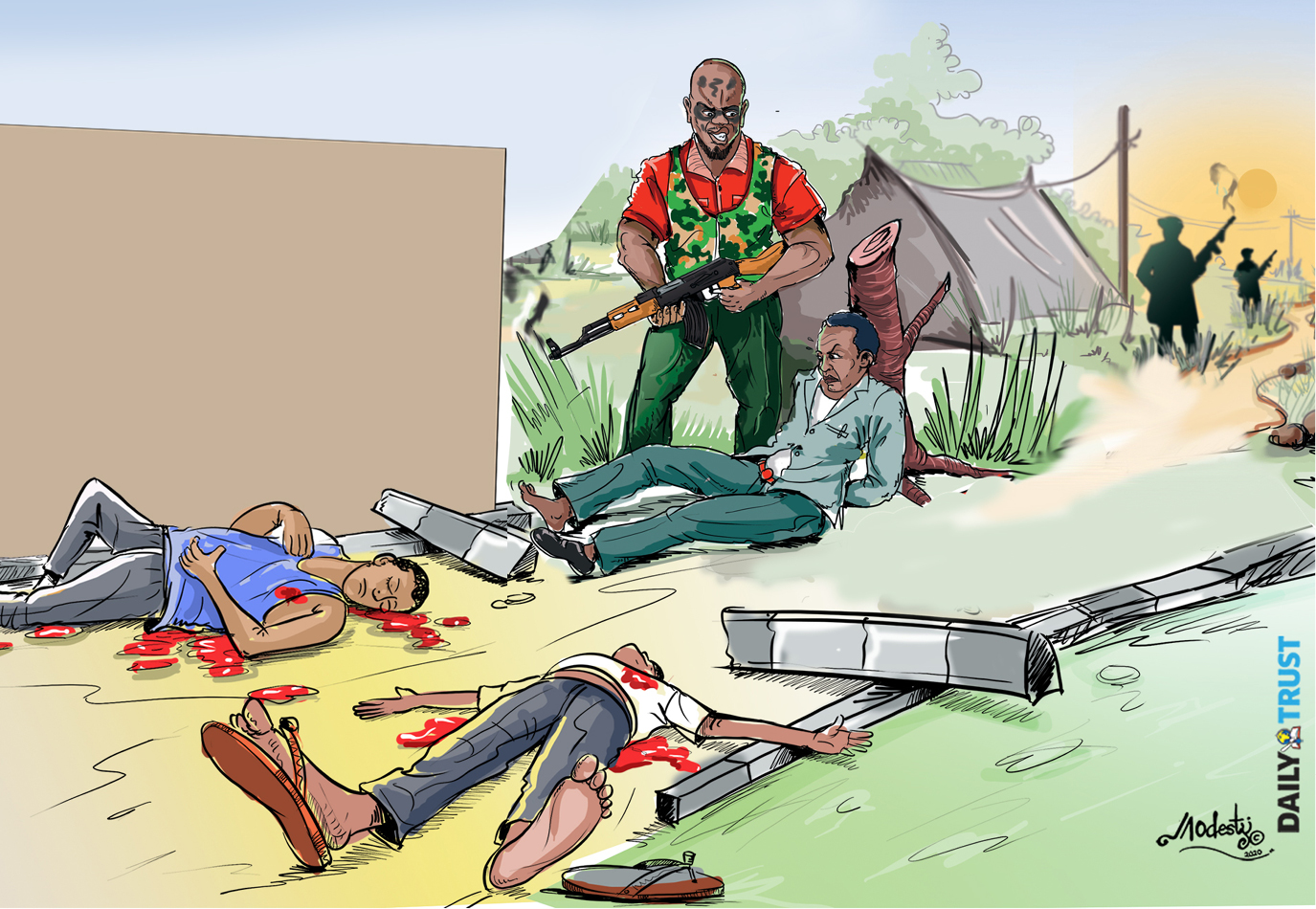Insecurity: An abnormality to normality
The level of insecurity in Nigeria, the giant of Africa, has been on the rising daily. Insecurity is a state of vulnerability to threat or danger. This has been a hindrance not only to the improvement of quality of life and material development of Nigerians but also affects the economy of the nation. This is […]

Insecurity
The level of insecurity in Nigeria, the giant of Africa, has been on the rising daily.
Insecurity is a state of vulnerability to threat or danger. This has been a hindrance not only to the improvement of quality of life and material development of Nigerians but also affects the economy of the nation.
This is evident in the Gross Democratic Product (GDP), Gross National Product (GNP) as well as the Per Capita Income (CPI).
Nigeria began to witness insecurity since the Civil War that started in 1967 which lasted for three years.
Recently, the nation suffered some attacks that give it away as the third most terrorized nation according to data from (SBM) intelligence.
From January to November in 2020, different regions of the nation has experienced an average of 142 attacks according to the SBM intelligence.
The North-Eastern states, which used to be the most insecure states, have been rampantly terrorized by Boko Haram extremists. The terrorism that began in 2009 as a campaign against western education has degenerated so much that thousands of people have been killed, while several people have been displaced from the region.
The kidnap of 27 Kagara boys on 17th February; 300 Jangebe girls on 26th February; 39 Afaka students on 11th March and as well as 23 Greenfield students on April 20th all in 2021 proves that the government’s efforts in tackling insecurity are not yielding the expected results. On Friday, 14th May 2021, Daily Trust reported that four vigilantes were killed by bandits in Kaduna State.
The South-Western region, where the nation’s centre of excellence is located, is also under armed herders’ attacks. Perhaps because of the Federal Government’s inability to address the insecurity issues, the region’s governors created the Amotekun, an armed security outfit, to curtail it. This was later supported by Sunday Igboho, an activist in the region.
The South Eastern states, the region most affected by the Nigerian Civil War, have been witnessing a series of attacks from gunmen suspected to be members of the Indigenous People of Biafra (IPOB).
On 10th May 2021, Premium Times reported that 21 police officers were killed in a gun attack in Akwa Ibom State of the region. This came after several other attacks in different states of the region from the months of January to May 2021. All these assaults were suffered majorly by the officers of the Nigerian Police Force.
As different state governments are trying to secure their states, the Federal Government needs to stop mere threats and swing into action if it really intends to secure the lives and property of Nigerians as promised prior to the 2015 general elections.
Al’Amin Umar, Department of Mass Communication, University of Maiduguri
